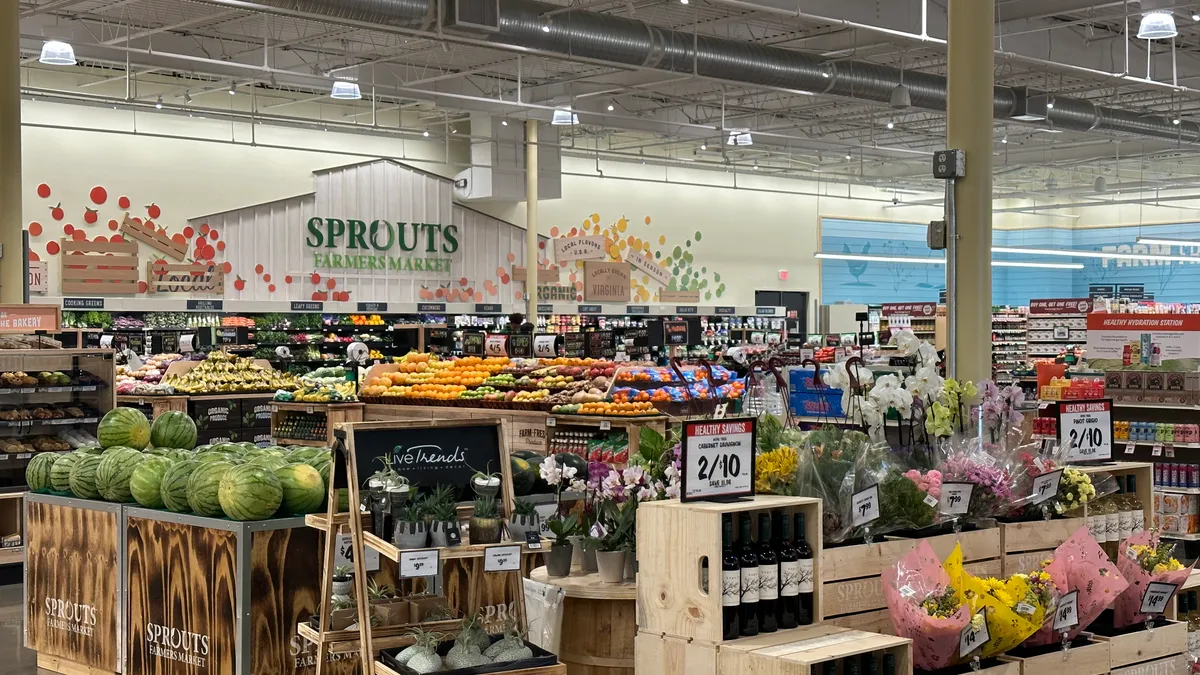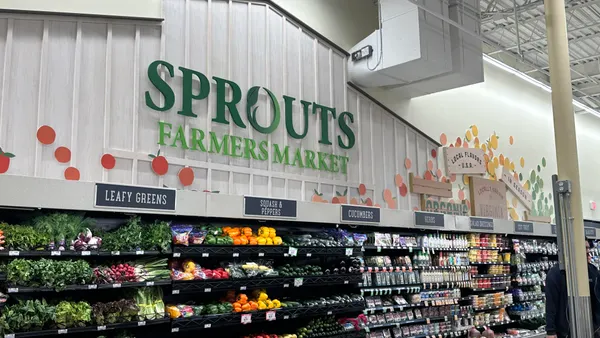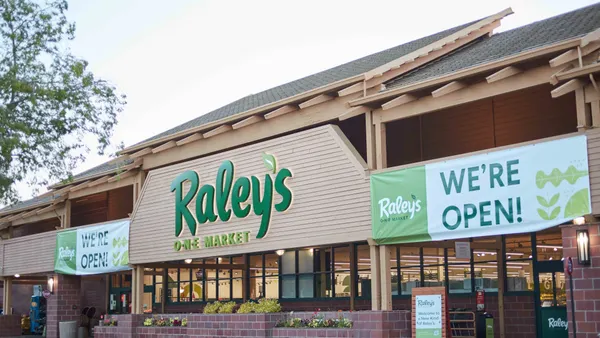Dive Brief:
- Sprouts Farmers Market’s first quarter performance continued the grocer’s positive trend in comparable-store sales and private label growth at a time of macroeconomic uncertainty across the grocery industry.
- The company has begun to “lay the groundwork” for self-distribution of fresh meat and seafood alongside produce, building out the chain’s self-distribution network, CEO Jack Sinclair told investors Wednesday.
- Sprouts’ 2025 growth strategy focuses on opening at least 35 new locations, debuting its first loyalty program and ramping up in-sourcing, executives said on the company’s Q1 earnings call.
Dive Insight:
Building out self-distribution will be a focal point for Sprouts this year and next. Sprouts is currently on track to begin in-sourcing from its first distribution center in Q3 and will begin to expand its Northern California distribution capacity in 2026, CFO Curtis Valentine said.
“[These moves] will complete the initial meat and seafood in-sourcing journey, as well as supporting future growth in that region,” Valentine said.
Sinclair told investors that customer engagement will also remain central to the company’s brand strategy. Valentine noted that Sprout’s inaugural loyalty program is still on track to roll out nationwide in the second half of 2025. Thirty-five stores are currently piloting the program, the same amount as in December, and the grocer continues to see strong customer interest and interaction, Valentine said.
Sprouts’ e-commerce sales saw significant Q1 growth, increasing around 28% and representing 15% of total sales for the quarter. Meanwhile, Sprouts’ private label offerings contributed 24% of Q1 sales, Valentine said.
Sprouts sees comps sales increase for sixth consecutive quarter
Sprouts reported a 19% year-over-year increase in net sales in Q1 driven by nearly 12% comparable store sales growth and strong results from newly opened locations, Valentine told investors.
Sprouts is sticking to its goal of opening at least 35 new stores this year, all in existing markets, and has so far debuted three, Sinclair said, adding that the company currently has nearly 120 stores approved and more than 85 leases signed. In the future, Sprouts is planning to expand into new markets, particularly the Midwest and the Northeast, Sinclair said.
The grocer doesn’t anticipate tariffs being an issue with operating and selling food in 2025 as most items it sells come from the U.S. and products it carries that are sourced from Mexico are “protected more or less” without specifying how, Sinclair said. However, the cost of building stores may be an issue in the long term due to tariffs on steel and lumber, he said.
“The thing we are paying attention to is the cost of building our stores,” Sinclair said “So far I don’t think [tariffs are] going to have an impact on us this year, but we’re going to have to think pretty hard about what the long-term impact might be on that.”














